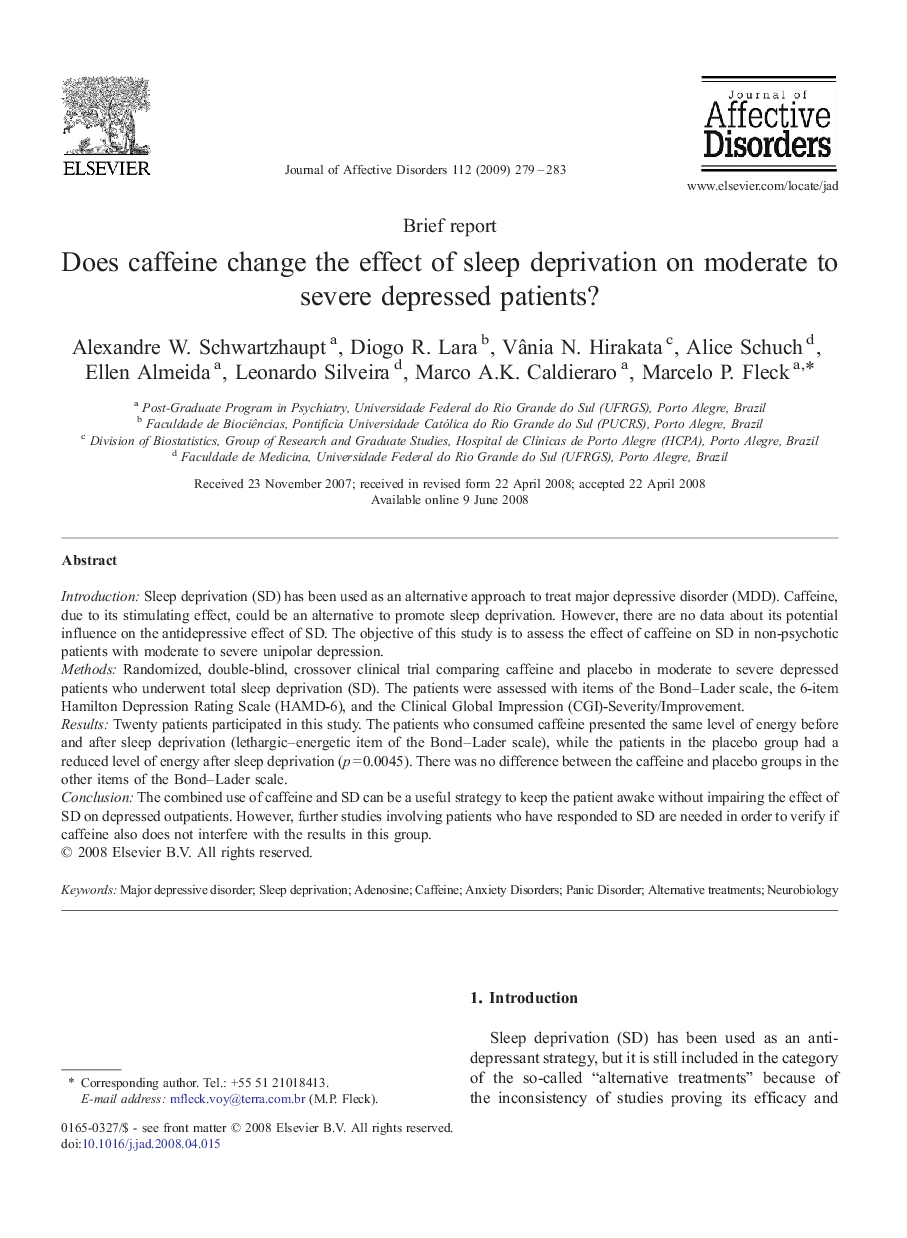| Article ID | Journal | Published Year | Pages | File Type |
|---|---|---|---|---|
| 6236697 | Journal of Affective Disorders | 2009 | 5 Pages |
IntroductionSleep deprivation (SD) has been used as an alternative approach to treat major depressive disorder (MDD). Caffeine, due to its stimulating effect, could be an alternative to promote sleep deprivation. However, there are no data about its potential influence on the antidepressive effect of SD. The objective of this study is to assess the effect of caffeine on SD in non-psychotic patients with moderate to severe unipolar depression.MethodsRandomized, double-blind, crossover clinical trial comparing caffeine and placebo in moderate to severe depressed patients who underwent total sleep deprivation (SD). The patients were assessed with items of the Bond-Lader scale, the 6-item Hamilton Depression Rating Scale (HAMD-6), and the Clinical Global Impression (CGI)-Severity/Improvement.ResultsTwenty patients participated in this study. The patients who consumed caffeine presented the same level of energy before and after sleep deprivation (lethargic-energetic item of the Bond-Lader scale), while the patients in the placebo group had a reduced level of energy after sleep deprivation (p = 0.0045). There was no difference between the caffeine and placebo groups in the other items of the Bond-Lader scale.ConclusionThe combined use of caffeine and SD can be a useful strategy to keep the patient awake without impairing the effect of SD on depressed outpatients. However, further studies involving patients who have responded to SD are needed in order to verify if caffeine also does not interfere with the results in this group.
